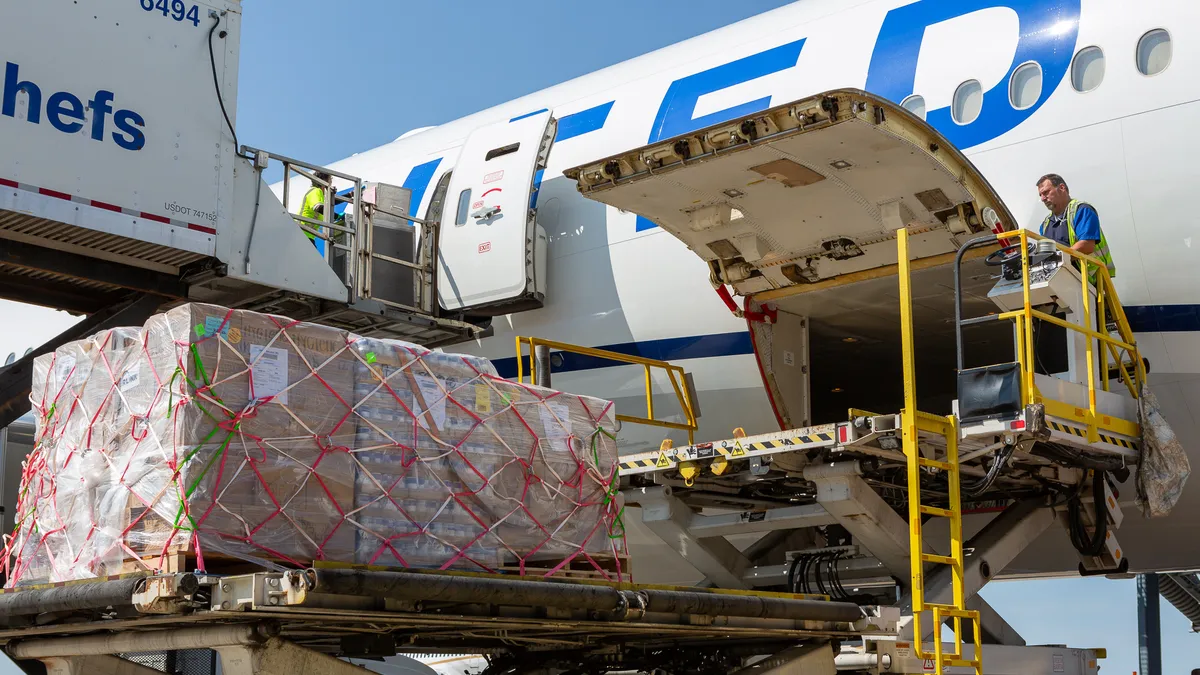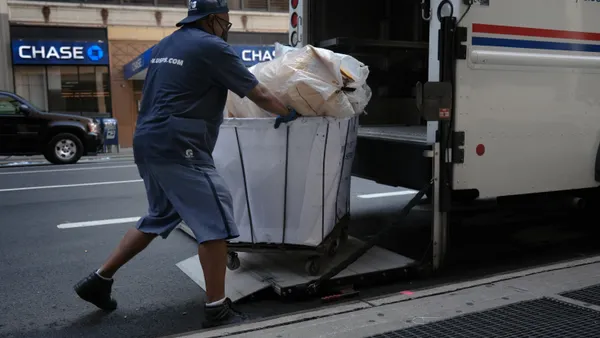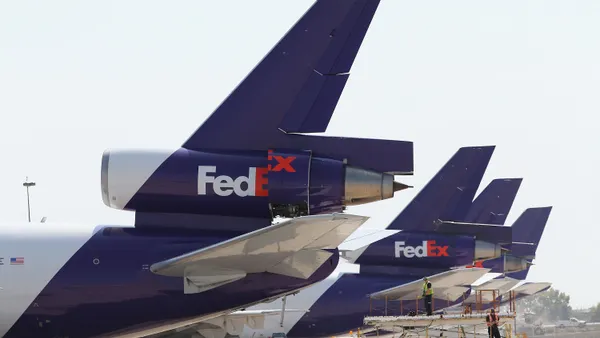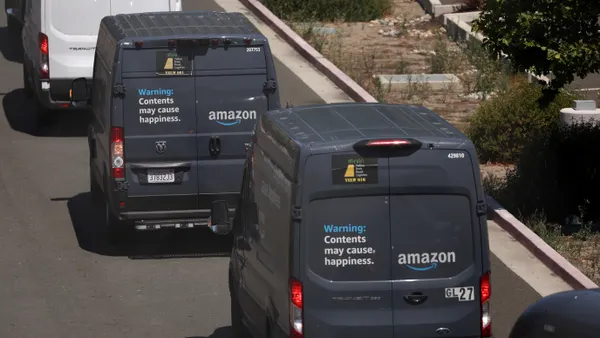Dive Brief:
- As the dust settles on FedEx's decision not to renew its Express domestic contract with Amazon, analysts disagree on whether the move was a prudent one or a risk that could jeopardize FedEx's margins further down the line.
- In research notes emailed to Supply Chain Dive Monday, Moody's analysts said the decision "makes sense given expectations of strong e-commerce growth." Morgan Stanley analysts said the carrier is putting its margins at risk while claiming to do the opposite. FedEx justified the move as an opportunity to take advantage of "significant demand and opportunity for growth in e-commerce," stating just 1.3% of FedEx's total revenue comes from Amazon business. FedEx reported $17.3 billion in revenue in 2018.
- No matter which outlook turns out to be true, the situation "signals [Amazon's] emergence as a significant player in the industry and brings a new level of risk to numbers at both UPS and [FedEx]," according to Morgan Stanley, whose analysts warned against underplaying the impact of FedEx's move.
Dive Insight:
Moody's analysts seem to buy FedEx's own explanation for breaking up with Amazon, stating there will be enough e-commerce parcel volume to support FedEx's growth in Express and Ground services, even after the carrier added Sunday delivery.
FedEx and other carriers have made it clear in the past that Amazon's business is a volume game — low margins but seemingly endless volume, in theory, can still be good business. But, Morgan Stanley explained, Amazon has downplayed the amount of revenue it was bringing in from Amazon's express business, but the Express network represents a fixed cost — meaning delivery capacity on hand will stay the same with or without the revenue from Amazon's business. The analysts posit the decrease in margins caused by this dynamic could equal any margin gains achieved by ditching Amazon's low-margin business.
Time will tell if FedEx's decisions will help or hurt the carrier's bottom line. But, Morgan Stanley analysts are ostensibly more confident that this move, combined with Amazon's break up with XPO logistics at a facility earlier this year, marks the beginning of a new era in parcel delivery where Amazon has "come out" as a true logistics player after months of caveats and denials.
Morgan Stanley believes Amazon has enough internal capacity to handle all Prime parcels. The training wheels are off Amazon's internal logistics services, the analysts concluded.














